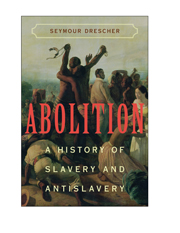Book contents
- Frontmatter
- Contents
- Preface
- PART ONE EXTENSION
- PART TWO CRISIS
- PART THREE CONTRACTION
- 9 British Emancipation
- 10 From Colonial Emancipation to Global Abolition
- 11 The End of Slavery in Anglo-America
- 12 Abolishing New World Slavery – Latin America
- 13 Emancipation in the Old World, 1880s–1920s
- PART FOUR REVERSION
- Index
- References
12 - Abolishing New World Slavery – Latin America
Published online by Cambridge University Press: 04 August 2010
- Frontmatter
- Contents
- Preface
- PART ONE EXTENSION
- PART TWO CRISIS
- PART THREE CONTRACTION
- 9 British Emancipation
- 10 From Colonial Emancipation to Global Abolition
- 11 The End of Slavery in Anglo-America
- 12 Abolishing New World Slavery – Latin America
- 13 Emancipation in the Old World, 1880s–1920s
- PART FOUR REVERSION
- Index
- References
Summary
Cuba and Puerto Rico
On the eve of the disruption of the American Union, the last two dynamic Ibero-American slave systems appeared to be as robust as ever in their potential for future growth. In Cuba, Spain's largest slaveholding colony, planter economic expectations for the future remained high. Cuba, unlike Brazil or the United States, was the last New World system to tap into Africa as its reservoir of slave recruitment, albeit at rising prices because of British naval constraints. By 1856–1860, the price of slaves being loaded in Africa had dropped by more than 40 percent, but slave prices in Cuba had risen by 75 percent. Cuban planters increasingly concentrated their slaves on growing sugar – the most productive crop between 1830 and 1860. In 1827, about a quarter of the Cuban slave population worked on cultivating sugar and a third on coffee. In 1846, 36 percent were working in sugar and 18 percent in coffee. By 1862, the respective percentages were 47 percent to 7 percent. So avid was Cuba's search for labor that the Spanish government opened a market for indentured migrant labor from China. Yet, Cubans still preferred enslaved Africans to indentured Asians as long as they could purchase them. Although slave prices were always higher than indentured contacts during the 1850s, Cuban planters purchased two Africans for every indentured laborer landed from Asia.
- Type
- Chapter
- Information
- AbolitionA History of Slavery and Antislavery, pp. 333 - 371Publisher: Cambridge University PressPrint publication year: 2009



